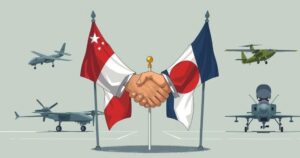Now is the Crucial Moment for U.S. Engagement in Syria

The U.S. must act promptly to engage with Syria and alleviate the humanitarian crisis caused by economic isolation. Scaling humanitarian aid, easing sanctions, and restoring World Bank programs are essential steps to support recovery. Effective U.S. action could help stabilize the region while restoring economic conditions necessary for rebuilding.
The U.S. must take immediate action to engage with Syria or risk perpetuating the suffering of its citizens. Economic isolation punishes ordinary Syrians instead of the regime, which has collapsed. With new opportunities for direct support emerging, the international community should abandon the status quo and offer assistance that meets the immediate needs of the population, especially as millions face extreme poverty and dire circumstances in daily survival.
The urgency of scaling humanitarian aid is greater than ever, especially as last year’s donations fell far below needs, at just one-third of the required assistance. However, such emergency aid is merely a temporary solution; it cannot repair an economy devastated by years of conflict and sanctions that have led to significant poverty among the populace. Without substantial economic recovery efforts, the threat of continued violence and instability looms large.
The United States is at a critical juncture where inaction could lead to greater regional instability, particularly with a potential resurgence of terrorist organizations. Addressing the humanitarian crises alongside regional security concerns is imperative, as failure to engage effectively could result in a larger collapse and an increase in violence in Syria, which has been through tremendous suffering for far too long.
The Trump administration should prioritize three actionable steps: Firstly, provide clarity on legal frameworks and ease sanctions to stimulate humanitarian access and commercial activity necessary for recovery. Recent actions by the Biden administration could be expanded to cover broader engagements that lift punitive measures, allowing for more comprehensive recovery efforts while clearly differentiating between the new authorities and past regimes.
Secondly, U.S. influence at the World Bank should be leveraged to resume programs that address basic needs and essential services for Syrians, which have been suspended for 14 years. By channeling funds directly to civil servants, the U.S. can help restore critical health and educational services that have deteriorated during years of conflict. Immediate financing for these services could lay the groundwork for greater recovery efforts across the nation.
Finally, the U.S. must facilitate the reintegration of Syria’s financial institutions into the global financial system. Without this integration, efforts for large-scale development and investment will suffer. Working alongside international financial institutions, the U.S. can help set up independent assessments and necessary reforms to support the rebuilding process, allowing for greater economic stability and development in the long term.
The implementation of these measures will not only deliver immediate benefits to Syrian people but also work as confidence-building steps toward a durable political solution. By showing commitment to bridging the humanitarian gaps, the international community can re-establish trust and pave the way toward lasting peace and stability in Syria.
The ongoing humanitarian disaster in Syria stems from a decade of conflict and economic collapse following the regime’s fall. International sanctions and a lack of action have only exacerbated the suffering of ordinary Syrians, who now face staggering poverty and a bleak future. The country needs urgent economic support to facilitate recovery and prevent further instability in the region, especially as millions remain displaced and vulnerable.
In summary, the situation in Syria necessitates urgent U.S. engagement and support, focusing on alleviating human suffering and promoting economic recovery. By easing sanctions, supporting basic needs through the World Bank, and reintegrating financial institutions, the U.S. can play a pivotal role in stabilizing Syria. The time for action is now to ensure that the impacts of past inactions do not prolong the crisis.
Original Source: foreignpolicy.com






